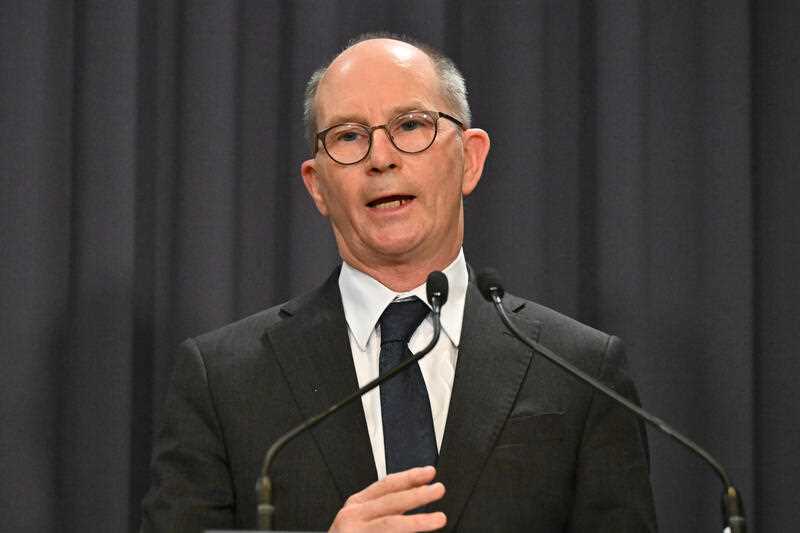Australia doesn’t need to impose additional travel requirements for people coming from China because domestic COVID-19 vaccination rates and local surveillance systems are strong, the chief medical officer says.
People travelling from China will be required to test negative for COVID-19 within 48 hours of departure from Thursday.
In a letter to the health minister, dated December 31, Professor Paul Kelly said any additional measures on Chinese travellers would be “inconsistent with the current national approach to the management of COVID-19 and disproportionate to the risk”.
Prof Kelly recommended the government consider enhancing surveillance capabilities, especially for international arrivals.
Suggested measures included testing plane wastewater, voluntary sampling of arrivals, an increase in community wastewater testing and following up with people who test positive for the virus and recently returned from overseas.
Health Minister Mark Butler announced the additional testing requirement the day after receiving the advice.
Mr Butler said while there was no evidence of an imminent threat to Australia, he made the decision out of “an abundance of caution”.
He cited the need for more data out of China to ensure authorities were able to quickly detect and assess the impact of any new COVID-19 variants.
Mr Butler said he welcomed China’s decision to re-open its borders and allow people to travel once again, with a spike in travellers to Australia expected.
“I know that hundreds of thousands of Australians of Chinese descent … are particularly looking forward to the opportunity to reunite with family and friends,” he said on Monday.
“This is a very positive development, but we need to ensure that we have the information we need to protect the health of Australians.”
The decision came after Beijing last month announced it was scrapping strict “zero-COVID” measures in favour of a new policy of living with the virus.
However, a wave of infections has since erupted across China after borders had been kept all but shut for three years amid a strict regime of lockdowns and relentless testing.
Prof Kelly acknowledged in his advice to the government that accurate COVID surveillance data from China was scant.
He also noted experts in China are predicting three winter waves of COVID transmission with the current event expected to run until mid-January, followed by two waves in late January and late February to early March.
“We continue to monitor the situation very closely,” Prof Kelly said.
Infectious disease expert Robert Booy agreed with the government’s decision, saying the health minister was correct to say better surveillance was needed.
“There are no doubts that great minds differ,” Professor Booy told Seven’s Sunrise program.
“The potential for new subvariant is truly there in China, with tens of millions getting infected.
“You’re damned if you do and you’re damned if you don’t. They’ve made a reasonable choice.”
But the opposition’s assistant health spokeswoman said the conflicting stories were leaving people confused.
“Why would you have the chief medical officer say one thing, and the government ignore that and do another?” Melissa McIntosh told ABC TV.
“Australians very much have the right to be asking questions today.”
Nationals leader David Littleproud said it was a “dog’s breakfast”.
“It’s important the minister comes out and explains what he predicated his decision on,” he told Nine’s Today Show.
“If there is a rationale to that, obviously we’ll look through the lens of common sense and if that adds up, all well and good.”
The US, UK, France, India, Japan, Spain and South Korea have all imposed similar testing measures on arrivals from China.
By Dominic Giannini in Canberra



